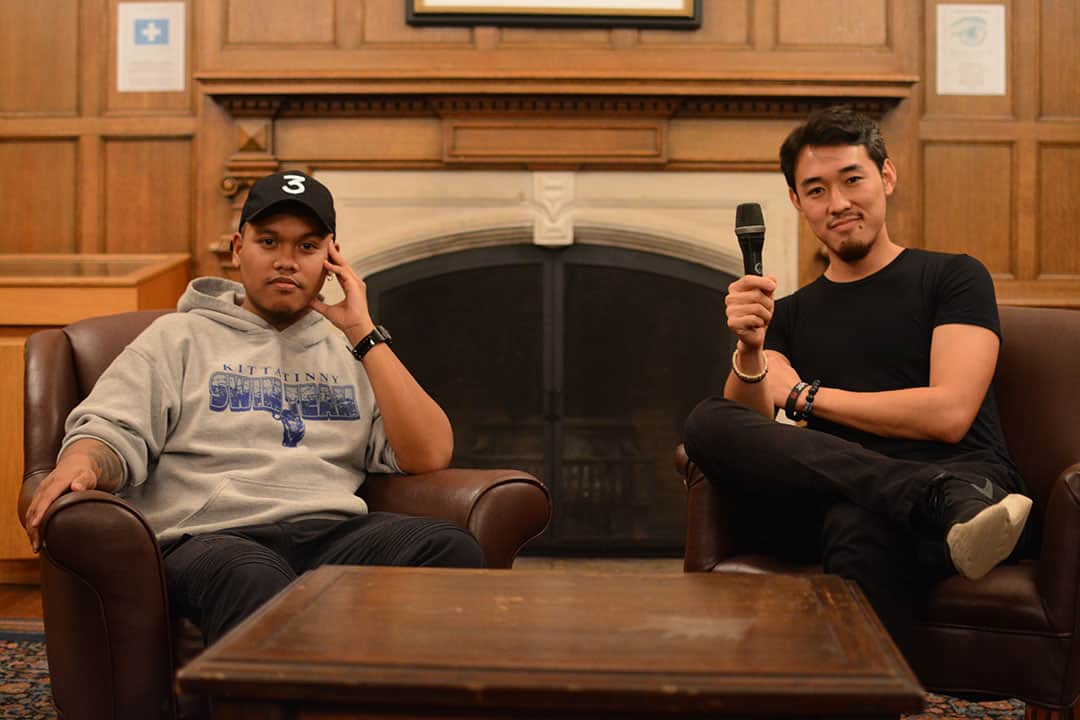On November 3, the University of Toronto Beatbox (UTB) club hosted a workshop with two of the world’s highest ranked beatboxers, Chris Celiz and Gene Shinozaki, collectively known as Spider Horse. Both performers are decorated champions — Shinozaki won the Grand Beatbox Battle in 2015, and Spider Horse won the annual American Tag Team Championship twice. The duo appeared at Trinity College’s Junior Common Room to lead the UTB’s beatboxing workshop.
Beatbox as a distinct art form began as an offshoot of hip-hop culture in 1980s New York. The “Beginner’s Guide to Beatbox” on Human Beatbox, a central online resource for beatboxers, defines it as “the crafting of music by only using the mouth, throat, and nose.” Because of its reliance on the human body alone as an instrument, beatbox is a unique way to create music. Shinozaki and Celiz both took up beatbox for this reason, believing that this freedom allowed for more self-expression than traditional methods.
Both beatboxers come from formal music training backgrounds, with specialties in percussion. For Celiz, a classical musical background was too restrictive of how he could voice himself — it felt too much like somebody else telling him how to speak musically. Given the musical freedom of beatbox, he found a new outlet that allowed him to develop new ways to make the sounds he wanted to convey to people. For Shinozaki, the ability to directly voice a musical thought without another instrument was similarly captivating.
Sean Ihn, co-president of the UTB, said that when he started beatboxing, there were very few fellow beatboxers around him. Seeing a lack of community, he reached out to Changmo Kim, his fellow co-president, in order to start the club. Ihn hopes to create a sustainable environment for beatbox at U of T that can showcase its potential as an easily accessible art form.
Celiz advised the UTB members to keep up their efforts in making beatbox more accessible and understandable to the general student body. “If we really love something this much, we need to share it with people who don’t know what we do,” said Celiz.
As representatives of a growing art form, the UTB finds itself in a place where it can motivate significant growth in awareness of beatbox and work toward building a stronger beatbox community in North America. Celiz and Shinozaki both feel that the club can work with established beatbox community members such as HeAt and BBK — both Canadian champions — to cultivate the scene.


